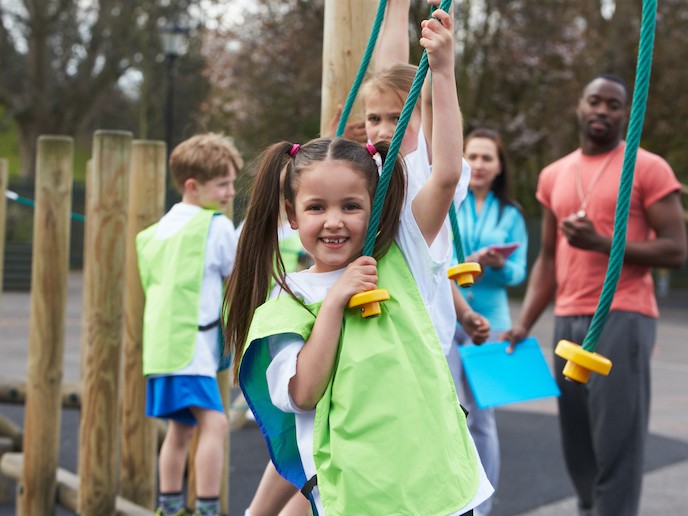Slotting social justice into school health and physical education
Some 46 % of Europeans never exercise or play sport, according to recent research(opens in new window). Only a small proportion of European children do the 60 minutes of moderate physical activity recommended by the World Health Organization. One solution is to increase the teaching of sports and physical activity in school health and physical education (HPE). But when students come from different cultures and backgrounds, the result can be gender bias, or even exclusion. Teachers can need guidance on surmounting cultural differences relating to gender, social class and others. “We want young people to grow up doing more beneficial physical activity. So, HPE teaching practices must be driven by social justice(opens in new window). This is typically defined by the values of inclusion, democracy and equity,” says Lena Larsson, senior lecturer and former head of the department of sport science at Linnaeus University(opens in new window), in Sweden. Larsson coordinated the EDUHEALTH(opens in new window) project, backed by the Marie Skłodowska-Curie actions, assembling academic researchers from Sweden, New Zealand and Norway. “We found that there are issues in the way HPE is conceptualised and taught,” she says. “As a result, HPE does not always provide equitable health outcomes across gender, sexuality, ethnicity, religion and social class. Some pupils may be marginalised in physical education, while others are privileged – depending on the school, region or country.”
Addressing inequity in physical education
EDUHEALTH researchers considered the relationship between social justice and health. Their observation of 20 HPE classes and interviews with 13 teachers in all three countries highlighted real differences in HPE pedagogy. “Scandinavia typically provides equal opportunities in education, regardless of students’ backgrounds,” says Larsson. “New Zealand schools embrace ethnic, cultural and linguistic differences, explicitly teaching about social justice issues in ethnicity and gender.” As she explains, since HPE classes are compulsory in most schools, they provide teachers with the perfect opportunity to reduce inequalities in physical activity and health. “This can be done by building an HPE curriculum and encouraging school policies focused on inclusion and social justice,” she notes.
Helping HPE teachers to help students
Larsson is convinced that teachers need to be aware of the current social inequities in their own society, so as to address the challenges around inclusive HPE. They also need the tools and opportunities to take those social inequities into account when teaching. The project developed five educational themes(opens in new window) to guide teachers when planning HPE lessons: attention to inclusiveness; inclusion of culturally inclusive practices; building teacher/student and student/student relationships; working in heterogeneous teams; and principles of fair play and democratically determined rules. Project findings also highlighted the importance of adopting caring pedagogies to foster inclusive and socially just HPE teaching practices(opens in new window). The EDUHEALTH team is developing an online resource for teachers to implement these social justice pedagogies in their own classes. Larsson concludes: “The benefits of physical education for children are vast and diverse – from improvements to their health through to social inclusion. I’m delighted our team was able to identify ways in which teachers can help students from all cultures and backgrounds to participate in and enjoy HPE classes.”







